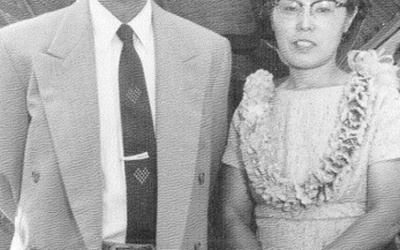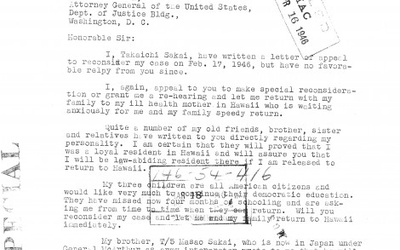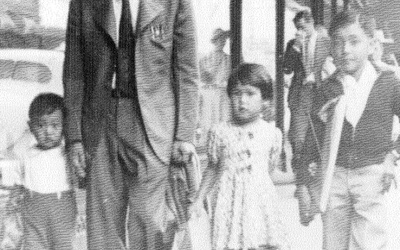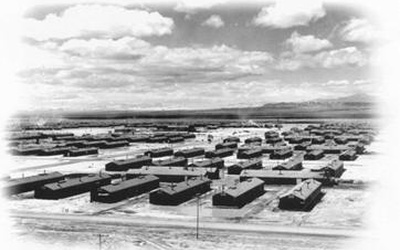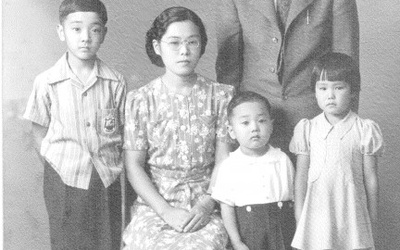The United States Vs. Takaichi Sakai
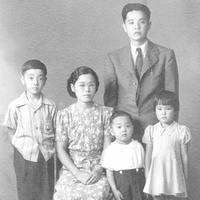
Koji Sakai writes about his grandfather's experiences during World War II. "I believe my Grandfather’s World War II experience is the All-American story of what happens when you 'look' like the enemy." Through research he uncovers the motives behind the decisions his grandfather made during this time.
This series was originally published on 8Asians.com.
Stories from this series
Part 5 of 5: Postscript
Sept. 30, 2011 • Koji Steven Sakai
Read Part 4 >>Even though my grandparents and their children were allowed to stay in the United States, it wasn’t until 1958 did they get their citizenship back. The World War II experience probably affected my grandparents in ways that I could never know. I have heard that my grandmother would cry when people asked her about the camps. This is probably why no one in my family discussed those years and it wasn’t until I started working at the …
Part 4 of 5: Decision
Sept. 23, 2011 • Koji Steven Sakai
Read Part 3 >> When the war ended, my grandparents requested that they not be sent to Japan, despite the fact that they had renounced their citizenship. However, once a person willingly gives up their citizenship, it’s not easy to get it back. The following is the end of a FBI report on whether the family should be allowed to stay or not. The part that stands out to me is: “The entire hearing very definitely shows (crossed out) this …
Part 3 of 5: Renunciant
Sept. 16, 2011 • Koji Steven Sakai
Read Part 2 >>After my grandparents answered “No No” to questions 27 and 28, the whole family was sent to Tule Lake, Northern California. A camp that was designated for “bad” Japanese Americans—in other words those who had answered the loyalty questionnaire negatively or had caused “trouble.” It was in Tule Lake that my grandparents, and thousands of Japanese Americans like them, willingly gave up their American citizenship and asked to be sent to Japan. His decision would forever brand …
Part 2 of 5: No No
Sept. 9, 2011 • Koji Steven Sakai
In Part 1, my grandfather, Takaichi Sakai, was arrested and investigated by the FBI. An Internee Hearing Board in February 1943 ordered that he be “interned for the duration of the war.” A few weeks later, the Military Governor had him sent to a “relocation center” on the Mainland. My grandmother, Sato Sakai, was given the opportunity to stay in Hawaii or accompany her husband to prison camps on the mainland. Her trouble with her in-laws, her inability to care …
Part 1 of 5: Crimes
Sept. 2, 2011 • Koji Steven Sakai
He burned sensitive files while working for a foreign government. He said that he was not willing to fight for the United States and would not give up his allegiance to a foreign power during a time of war. He renounced his American citizenship. Who was this enemy of the United States? He was my grandfather on my dad’s side. Having died before I was born, he was and has always been an enigma to me. My Aunt doesn’t remember …

